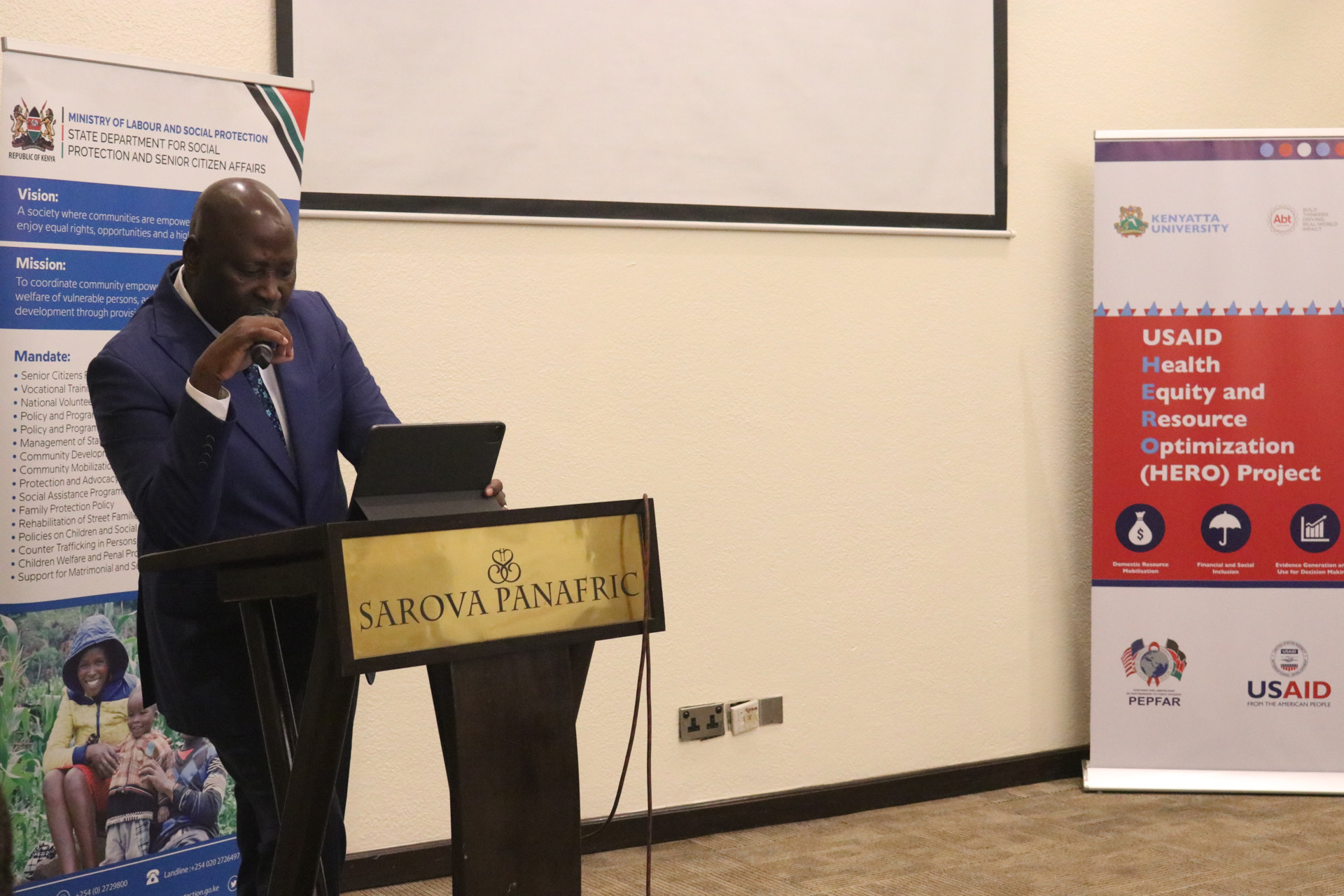Coordination, collaboration and stakeholder linkages remain key drivers for the Social Protection Sector at national level. Despite Kenya’s robust social protection landscape, a 2017 report identified need for enhanced coordination by the national government; this paved way for the establishment of the National Social Protection Secretariat (NSPS) in 2018 to coordinate delivery of social protection programs and interventions in Kenya.
Membership of the NSPS is drawn from representation from the State Department of Social Protection, line ministries including the Ministry of Education, Ministry of Health, Ministry of Agriculture, the National Drought Management Authority, Civil Society Organizations (CSOs), Non-Governmental Organizations (NGOs) and development agencies.
USAID Health Equity and Resource Optimization (USAID HERO) supported the Social Protection Secretariat to convene a National Steering Committee on Social Protection NSCSP meeting in April 2024. This forum brought together major stakeholders working in the social protection space at both national and sub-national level.

The NSCSP) meetings are convened bi-annually under the leadership of Principal Secretary of the State Department of Social Protection as the chair. Guidelines also provide for Ad Hoc meetings if required. The committee is also comprised of thematic working groups of various technical areas. However, the previous last sitting was held in August 2022. Operational challenges resulting to the skipped meetings over the years was due to limited financial resources and the government transition after national general elections of 2022.
The April 2024 meeting was therefore a unique opportunity to resume operations of the NSCSP. During the forum, social protection initiatives carried out by the organizations represented since 2022 were highlighted, and special emphasis was made on the efforts at improving the coverage of poor and vulnerable groups in social protection schemes.
Further the meeting provided a platform to:
- Update of the committee of current legal and policy frameworks developments including the new National Social Protection policy, 2023 and the national social Protection Bill, 2024.
- Reinforcement of the steering committee by introduction of new member United States Agency for International Development, Health Equity and Resource Optimization (USAID HERO) project.
- Reporting on past interventions and future by the members, and
- Build synergy among the key stakeholders including the state (national and county governments) and non-state actors.
In his keynote address, the Principal Secretary Mr. Joseph M. Motari welcomed and acknowledged the important role that stakeholders have played in supporting the government meet objectives enshrined in article 43 of the 2010 constitution of Kenya, the National Social Protection Policy 2011 and 2023, national development plans, and other international treaties ratified by the country.
The Principal Secretary further welcomed the collaboration between the national and the county governments, as well as the local and international development partners. He further thanked and welcomed the USAID HERO as a member of the NSCSP. On behalf of the Government of Kenya, and the World Bank, the USAID HERO Project was also invited to work closely under Kenya Social and Economic Inclusion Project (KSEIP) to support efforts at improving and streamlining poverty targeting methods and systems in the Country.
USAID HERO’s Chief of Party spoke on the initiatives the Project intends to implement for Improved Financial Protection and Social Inclusion Systems for Health. He informed the organizations present that the Project held a 5-day National Consultative Workshop on Social Protection February 2024. This consultative workshop, attended by a number of organizations present at the Steering Committee meeting, deliberated and agreed on key recommendations towards improving policy and legislative frameworks, strengthen financial protection programs and identify areas for collaboration and data sharing for increased coverage of the poor.
